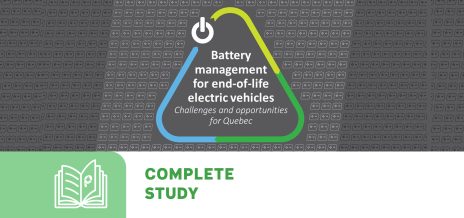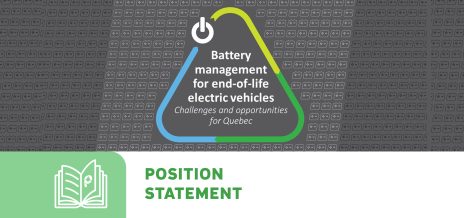Québec on its way to homegrown battery industry

Québec is well positioned to lead the way in lithium battery manufacturing and ramp up the transition to electric transportation.
In November, the Québec government announced its intention to invest up to $1.4 billion to develop the lithium battery sector and become a world leader in electric transportation.
The stars have never been so favourably aligned for a successful rollout of Québec’s strategy. The province has everything it needs to set up a complete value chain, from ore extraction to battery manufacturing and recycling. It has an abundance of raw materials such as lithium, nickel, cobalt, carbon (graphite), silicon and manganese, strategically important minerals that are essential for battery manufacturing.
Québec also has a number of other significant assets:
- Its hydroelectricity, a renewable resource with a small environmental footprint that will allow Québec to produce North America’s greenest battery;
- A world authority in battery R&D with over 850 patents, and a world-class university network that is an incubator for highly qualified talent;
- Expertise in making electric vehicles, with major players like Nova Bus, the Lion Electric Co. and BRP, to name just a few;
- Geographic proximity to major automakers and over 700 parts manufacturers, along with easy connections by rail and sea;
- Low operating costs compared to the rest of North America, and trade agreements providing access to a market of 1.5 billion consumers.
Finally, Québec is a welcoming place—and I ought to know—where home ownership is well within reach, healthcare is free and tuition fees are among the lowest in North America. It’s also one of the most business-friendly places around, with competitive wages and very generous tax and financial incentives.
Support for development of the battery industry
With the demand for electric vehicles skyrocketing worldwide as a result of the climate crisis, the lithium battery sector holds incredible potential for Québec’s economic growth. The government of François Legault expects to see public and private investments totalling $7 billion over the next 10 years. To make that growth a reality, the Québec government has launched the Stratégie québécoise de développement de la filière batterie to develop the battery industry as well as the Plan québécois pour la valorisation des minéraux critiques et stratégiques 2020-2025, or Québec Plan for the Development of Critical and Strategic Minerals 2020-2025, the measures of which complement each other. Another notable initiative is the Québec government’s 2030 Plan for a Green Economy, which aims, among other things, to replace fossil energies by electricity, particularly in the transportation industry.
Quebecers are showing a growing interest in purchasing electric vehicles thanks to the income tax credits made available to them. According to recent data from the Association des véhicules électriques du Québec (AVEQ) and Electric Mobility Canada (EMC), close to 50% of the plug-in hybrid and electric vehicles bought in Canada are purchased here in Québec.
Investissement Québec will play a pivotal role both in supporting the growth of Québec businesses and in attracting battery component manufacturers to our province. Recent events like the coronavirus pandemic and trade tensions between the U.S. and China have shown how important it is to have a strong local procurement chain. Investissement Québec is also responsible for prospecting for investors in mineral mining and processing and for assisting foreign companies in setting up operations here.
I have been conducting research in the field of lithium-ion batteries for 35 years. I worked in France and Japan before joining Hydro-Québec’s research institute, IREQ, in 1995. Ever since, I have been dreaming that Québec might become a top battery producer. Drawing on my network of local and foreign contacts, I now work with the Québec government, which has a transformative vision for the industry and is taking a growing interest in energy storage and the electrification of transportation. All the necessary ingredients are in place, and it is up to us to seize this opportunity and stake out a position on the world stage today.
This partner content was produced for Impulsion MTL 2020 – The International Fleet Management Forum.
Continue reading on this subject

Critical and strategic minerals (CSM) traceability pilot project for the Quebec battery sector
PILOT PROJECT FOR QUEBEC’S BATTERY INDUSTRY A number of measures, regulations and laws are currently being put in place in certain countries to secure the local supply chain, or that of allied countries, in Critical and Strategic Minerals (CSM). Europe, for example, has announced the introduction of a Battery Passport from 2027, to track the […]
Read more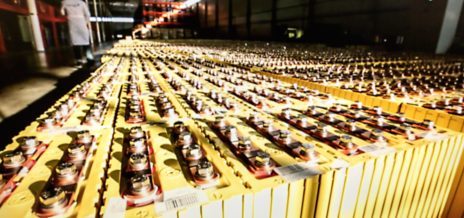
LITHIUM-ION BATTERIES : Local and international impact is on the horizon !
The lithium-ion battery sector is a key player in the future of electric and smart transportation in Quebec. Increasing announcements are highlighting the economic and environmental implications both locally and internationally.
Read more
Will industrial strategies chart a new course for the future of Quebec industries?
The Quebec economy—and more broadly the world economy—faces multiple challenges: the climate crisis, supply chain problems, labour shortages, inflation, etc. Quebec has an abundant supply of resources, know-how, and expertise; however, the next points on its agenda should include structuring, developing, and planning industrial activities.
Read more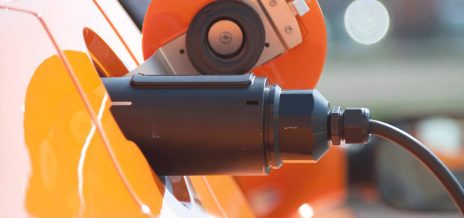
Hosting a Charging Station?
The new Clean Fuel Regulations, SOR/2022-140, (the “Regulations”) aim to displace the use of fossil fuels and promote the use of electric and hydrogen fuel cell vehicles.
Read more
Ambition EST 2030 : a roadmap for propelling Quebec to the forefront of the electric and smart transportation industry by 2030
Propulsion Québec, the cluster for electric and smart transportation, is announcing Ambition EST 2030, a roadmap for the electric and smart transportation (EST) industry developed in partnership with Deloitte.
Read more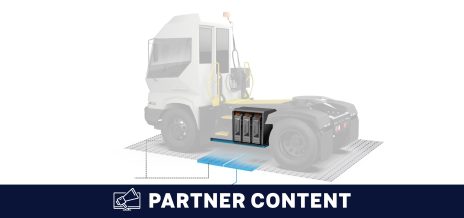
Less batteries, more autonomy: Revolutionizing the electrification of heavy-duty vocational trucks
Effenco recently launched a new, 100% electric solution that is poised to radically transform the vocational trucking sector, one of the most polluting sectors of the transportation industry.
Read more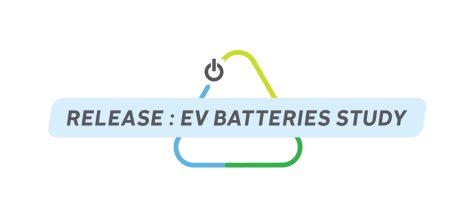
Propulsion Québec releases a new study on extended producer responsibility for end-of-life electric vehicle battery management
Propulsion Québec smart and electric vehicle cluster today released a brand new study entitled Extended Producer Responsibility for Electric Vehicle Lithium-Ion Batteries in Quebec.
Read more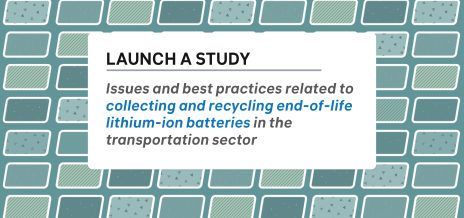
Issues and best practices related to collecting and recycling end-of-life lithium-ion batteries
Propulsion Québec launches a study on the issues and best practices related to collecting and recycling end-of-life lithium-ion batteries in the transportation sector.
Read more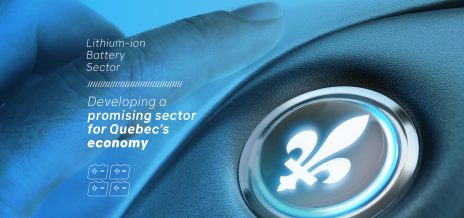
Lithium-Ion Battery Industry: Propulsion Québec Releases Study Confirming Huge Potential for Quebec
Propulsion Québec has released a study revealing the enormous potential of the lithium-ion battery industry in Quebec. The study, carried out by KPMG, looks at global markets for lithium-ion batteries and end-of-life battery recycling, and offers recommendations on how to grow those strategic sectors in Quebec.
Read more
